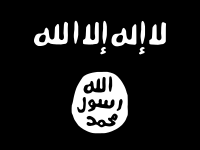
Photo from wikipedia
Although armed opposition actors are increasingly prevalent within contemporary conflicts, ethnographies seeking to understand and explain their relationship with international law are scarce. While scholars highlight the state-centric nature of… Click to show full abstract
Although armed opposition actors are increasingly prevalent within contemporary conflicts, ethnographies seeking to understand and explain their relationship with international law are scarce. While scholars highlight the state-centric nature of international law, discussing at length how it privileges state over non-state actors, few examine the way rebels perceive and relate to the international legal system. Drawing on seven months of field research among Kachin civil society and the Kachin Independence Organisation / Army (kio/A), this article demonstrates how the kio/A’s nascent engagement with international law is being strategically pursued as part of a broader rebel governance project. Ethnographic research exposes the oft neglected rebel perspective. It reveals how rebels interact with international humanitarian norms as a means to facilitate and mediate relations with both local and international actors, in an attempt to promote nation building aspirations and thereby strengthen resistance to state violence.
Journal Title: International Criminal Law Review
Year Published: 2019
Link to full text (if available)
Share on Social Media: Sign Up to like & get
recommendations!